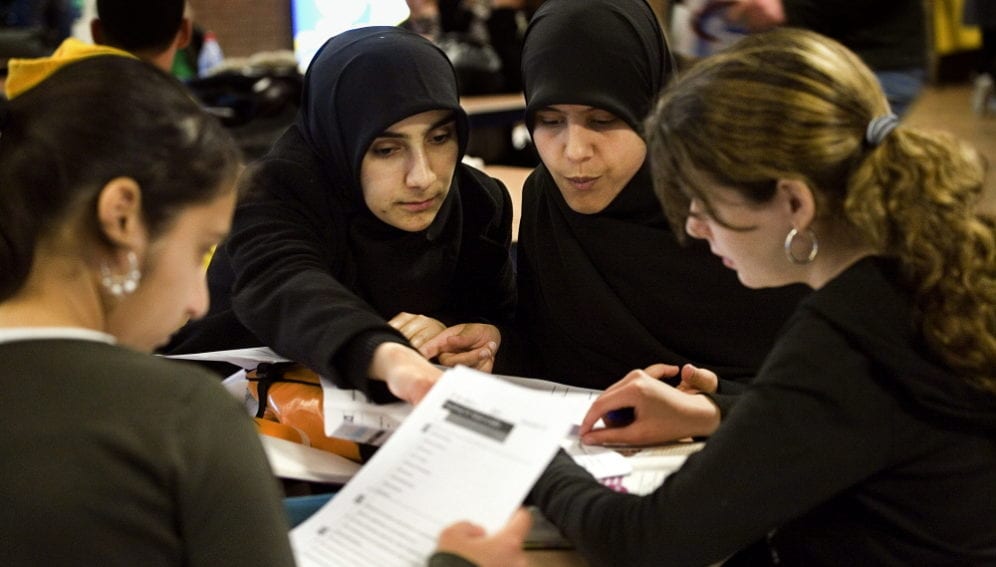Send to a friend
The details you provide on this page will not be used to send unsolicited email, and will not be sold to a 3rd party. See privacy policy.
[JAKARTA] A task force of 11 experts on science research in Muslim nations is seeking to jump-start a discussion on how to reform science education in universities throughout the Muslim world.
The Task Force on Science at Universities in the Muslim World met for the first time last month (16 December) in Kuala Lumpur, Malaysia.
At the meeting, task force chair Zakri Abdul Hamid, science advisor to Malaysia’s prime minister, said that science and technology in the 57 member states of the Organisation of Islamic Cooperation (OIC) has generally lagged behind other parts of the world.
“We are being left behind in the mastery of science, technology, engineering, mathematics — and reforming science education is the way to alleviate the situation.”
Zakri Abdul Hamid, science advisor to Malaysia’s prime minister
“We are being left behind in the mastery of science, technology, engineering, mathematics — and reforming science education is the way to alleviate the situation,” he said.
Zakri underlined the low investment in science and technology in OIC states, which rarely reaches one per cent of annual government spending.
The Muslim world is also short on scientists, with only 649 researchers for every million people — far below the world average of 2,532 per million people, according to UN figures.
According to Muslim-Science.com, an online journal that convened the task force, just five OIC countries — Egypt, Iran, Malaysia, Pakistan and Turkey — produce 70 per cent of scientific papers published in member countries.
Task force convener Nidhal Guessoum, a physicist at the American University of Sharjah, United Arab Emirates, says evaluating universities is an important way to address this failing.
“The main indicators of science production, such as papers, citations and patents, are produced by the universities,” he says. “That is why we would like to focus on universities.”
At the Kuala Lumpur meeting, task force members made various recommendations for improving Muslim universities. These included broadening the science curriculum to include the history and philosophy of science, emphasising student-led enquiry as a teaching strategy, evaluating the impact of the language used for teaching, and encouraging research collaboration among Muslim universities.
Bruce Alberts, an external expert to the task force who was a US science envoy to the Islamic world and president of the US National Academy of Sciences, said those strategies should involve governments and national science academies as well as universities.
Muslim world governments should provide incentives for by “offering funds competitively to support the best new proposals for university science education improvements”, he said. And national academies should help drive reform, he added.
He said that because nation’s science academies contains their best scientists, each “should make the improvement and spread of science education at all levels — from five year olds to graduate school — one of their central concerns”.
Abdul Ghafur, a statistician at the National Defence University of Malaysia who attended the task force meeting, said: “It’s a good movement. It will change our ideas about the best way to teach science.”
The task force is scheduled to report in June and will seek partners to implement its recommendations.
> Link to Muslim-Science.com’s summary of the task force initiative














